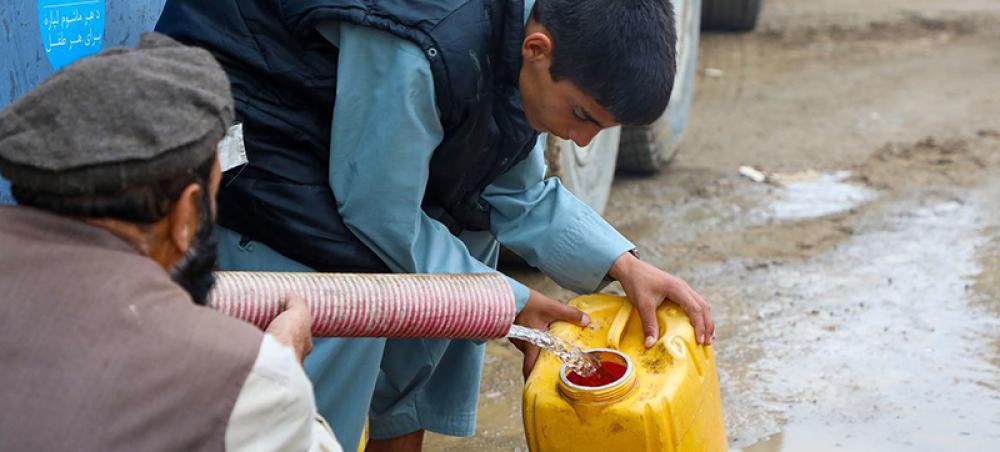Just Earth News | @justearthnews | 24 Mar 2023, 03:03 am Print

Image: UNICEF/Hasinullah Qayoumi
New York: Marking the most significant global conference on water in five decades, the World Health Organization (WHO) and UN Children’s Fund (UNICEF) called on all nations to invest in better access to water, sanitation, and hygiene (WASH) for all.
Some two billion people still have no access to safe drinking water and 3.6 billion, use sanitation services that leave human waste untreated. Access to safe water and sanitation offer a pathway to social and economic progress by supporting community health and productivity.
From solutions to actions
The world needs to progress four times faster to achieve universal access to adequate WASH services by 2030 the agencies said in a joint statement coinciding with the UN 2023 Water Conference, while progress needs to happen even faster across sensitive contexts and poorest countries.
The conference is a historic opportunity UNICEF and WHO said, to urge governments to take the following actions with support from UN agencies, multilateral partners, the private sector, and civil society organizations:
Governments need to develop a plan for increasing political commitment to safely managed drinking water, sanitation, and hygiene, including outreach to leaders at all levels of government and engaging with civil society groups.
Funding and financing
On funding and financing, it’s crucial to develop clear policy objectives to guide funding and financing decisions for WASH, as well as costed funding and financing strategies that take into account the needs of different regions and populations.
Tweet URL
Invest in people and institutions
It’s also important to develop a plan for building a stronger, more diverse, and gender-balanced workforce with stronger skills in the WASH sector, the agencies said, and support the growth of professionalized service delivery - particularly in small and rural environments - by providing capacity development for underpaid and inadequately trained staff.
Better data and evidence for decision making is also important, as is encouraging innovation and experimentation when it comes to WASH.
This should include developing supportive government policies and regulations and fostering collaboration between government, civil society groups, and private sector actors to develop and implement new solutions.
- Mass coral bleaching to hit Great Barrier Reef most years, study reveals
- Global water bankruptcy shock: Why the planet’s most precious resource Is collapsing
- Would you pay $1 million to stay on the moon? This company thinks so
- A historic UN deal is about to transform how the world protects its oceans
- Back to the Moon after 50 years: NASA readies historic Artemis II Mission





-1763561110.jpg)
